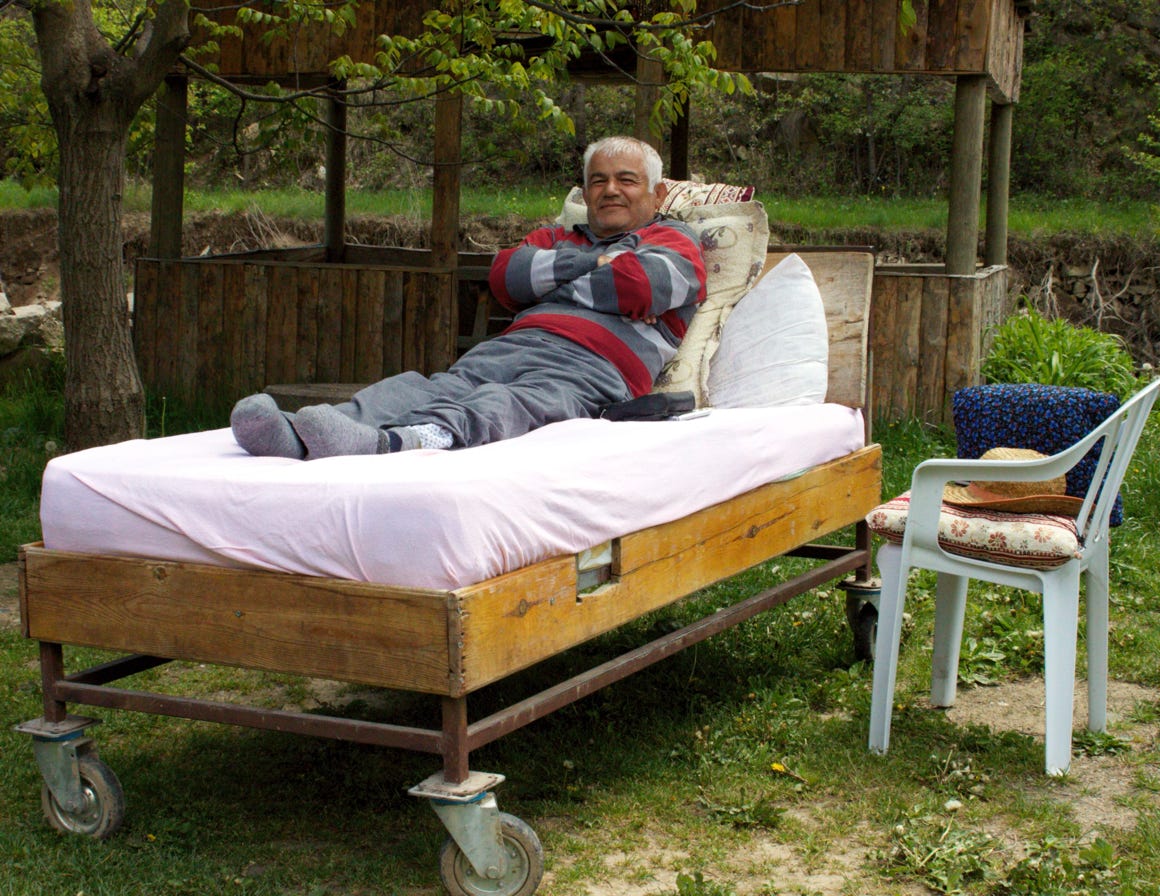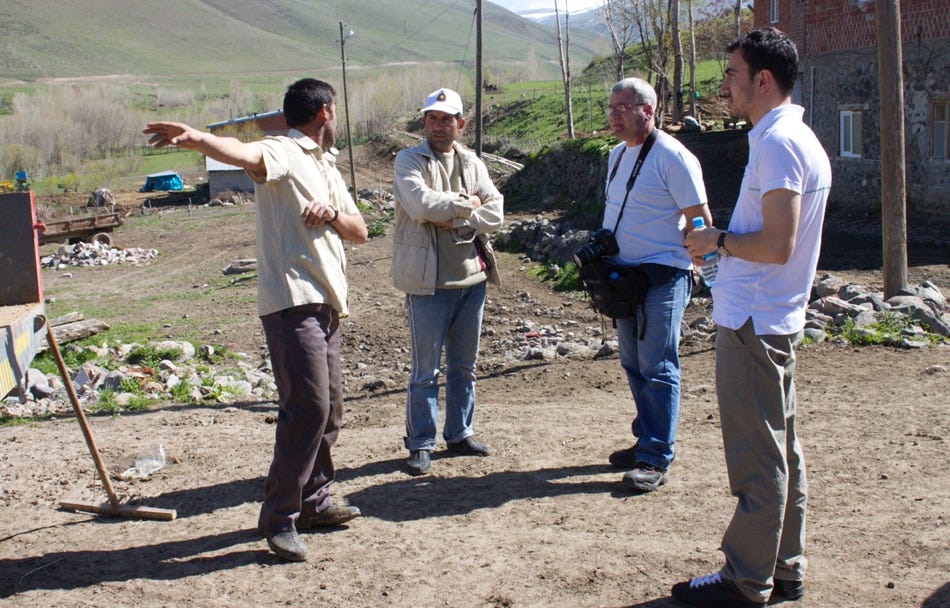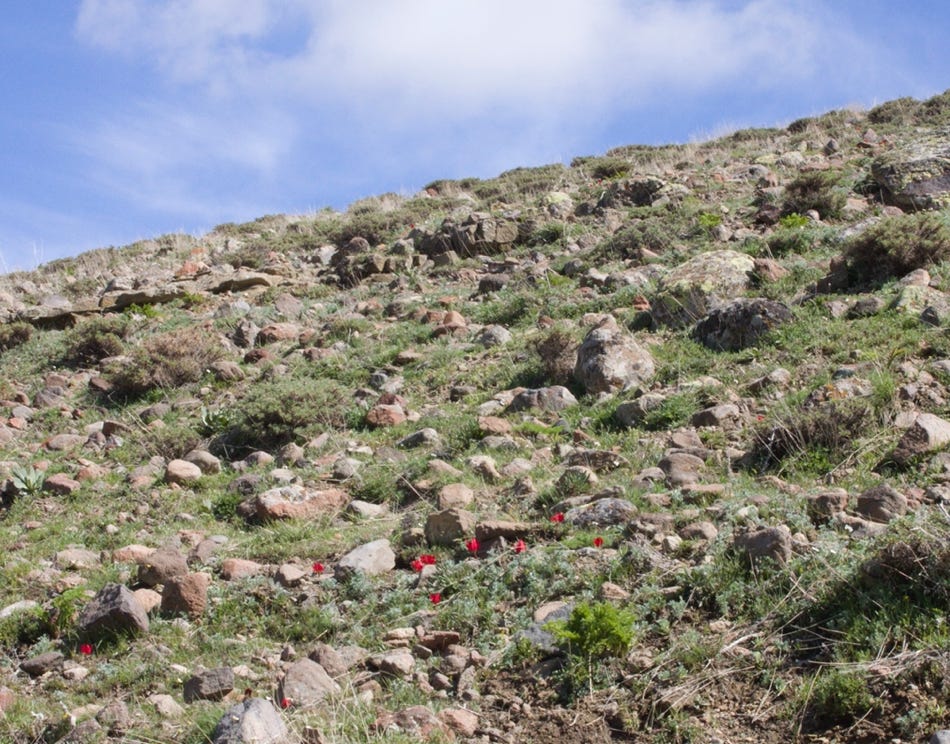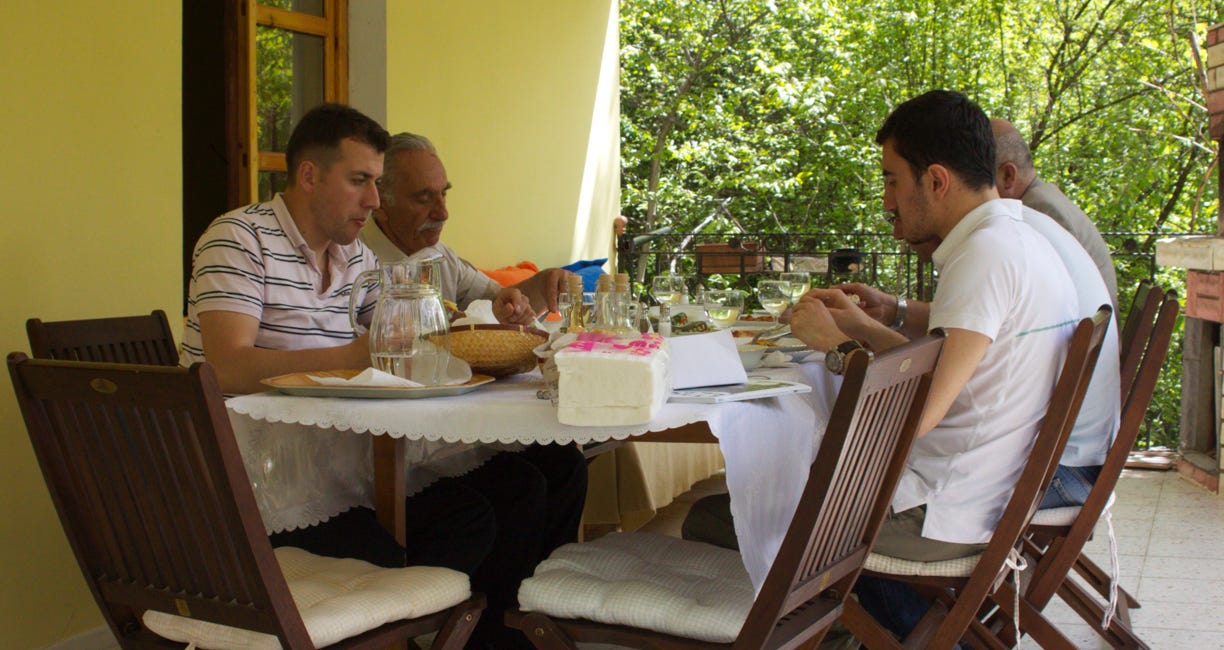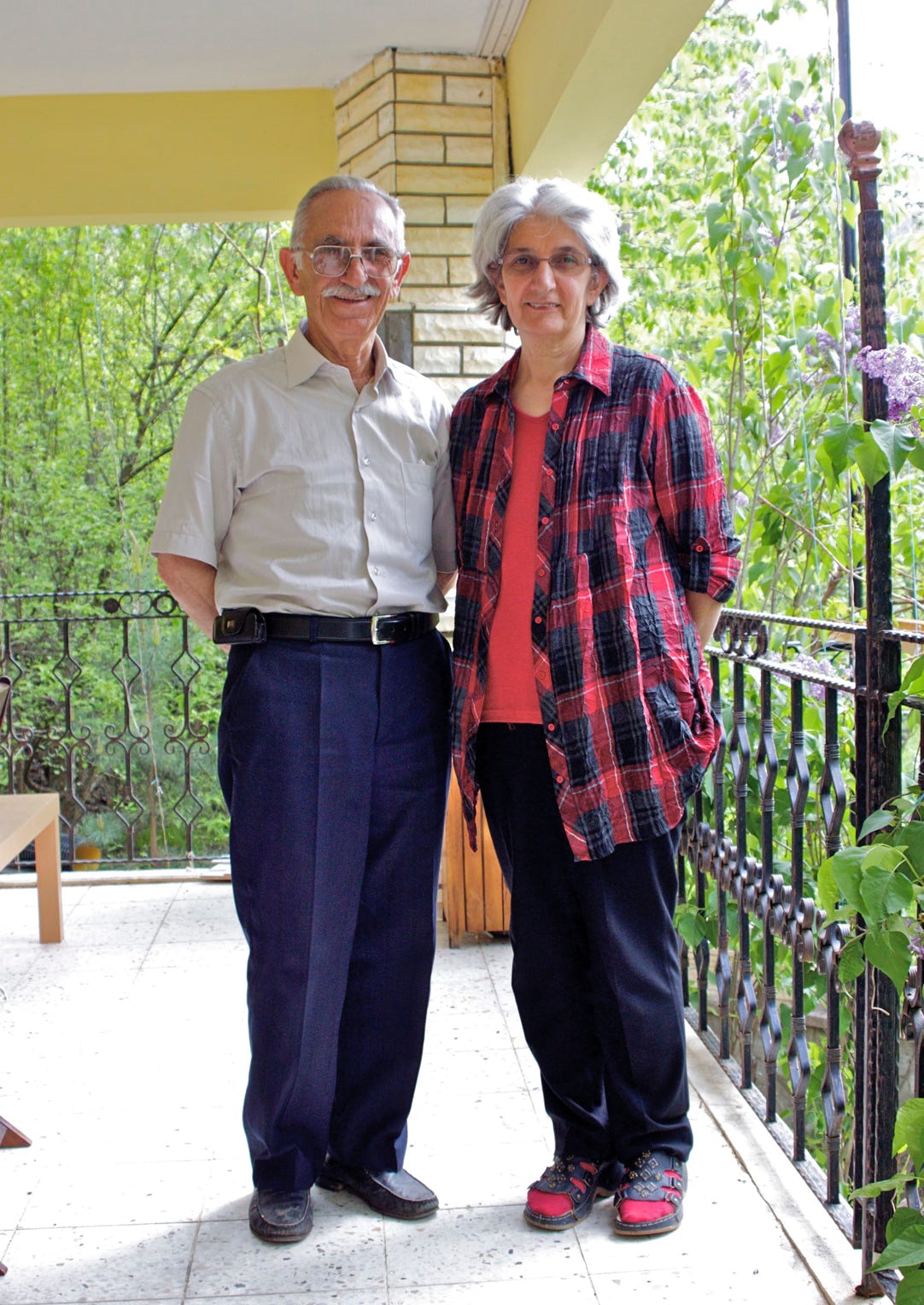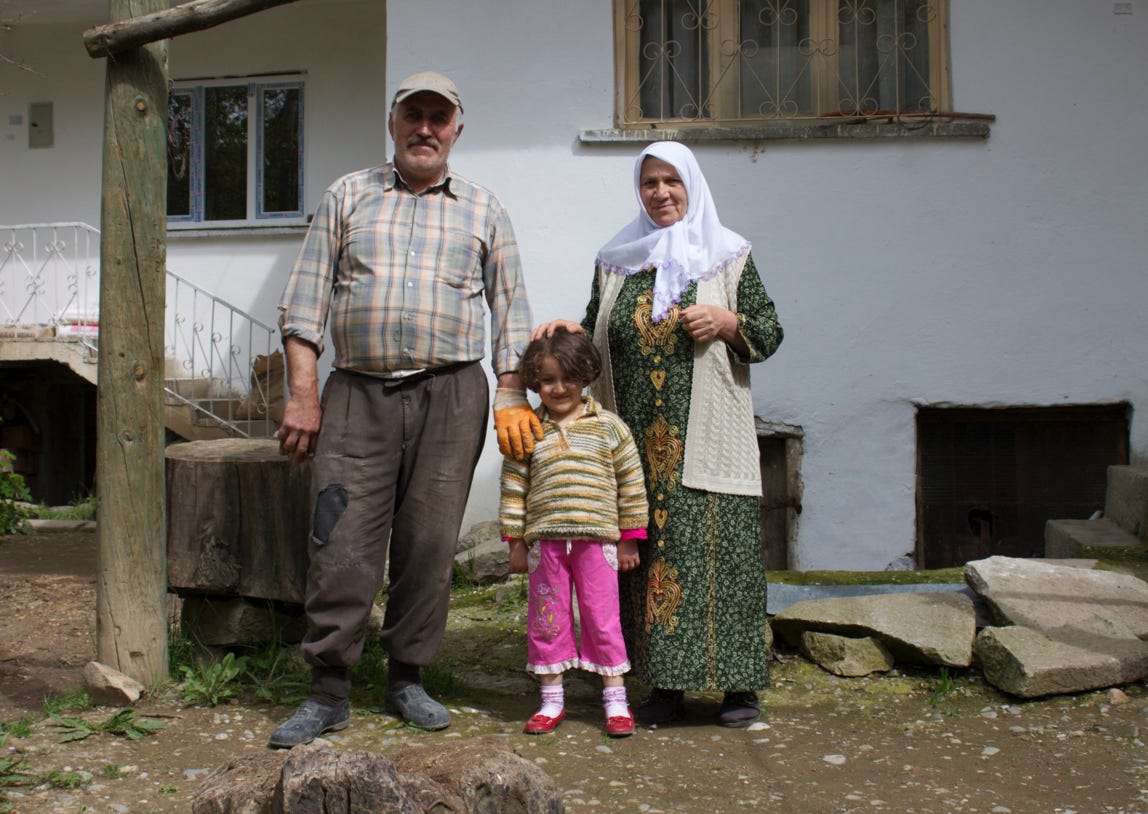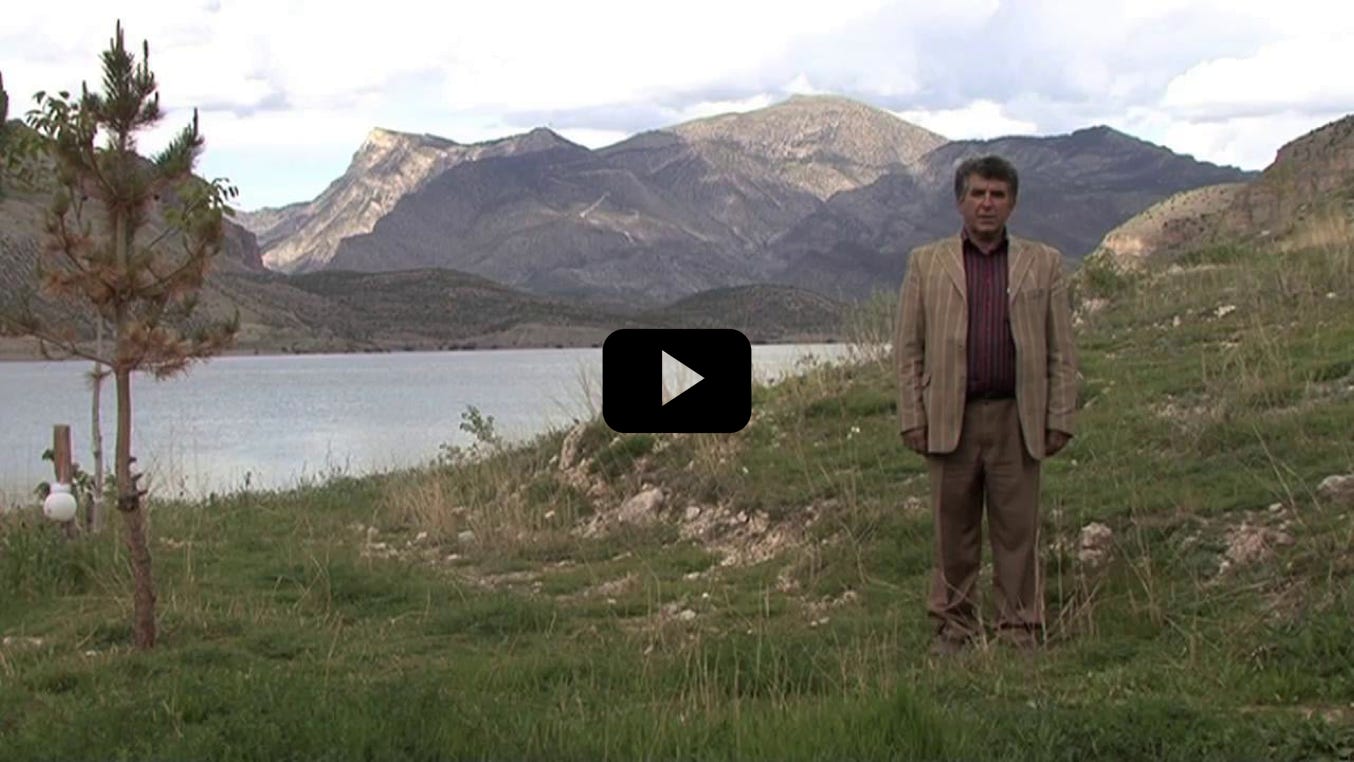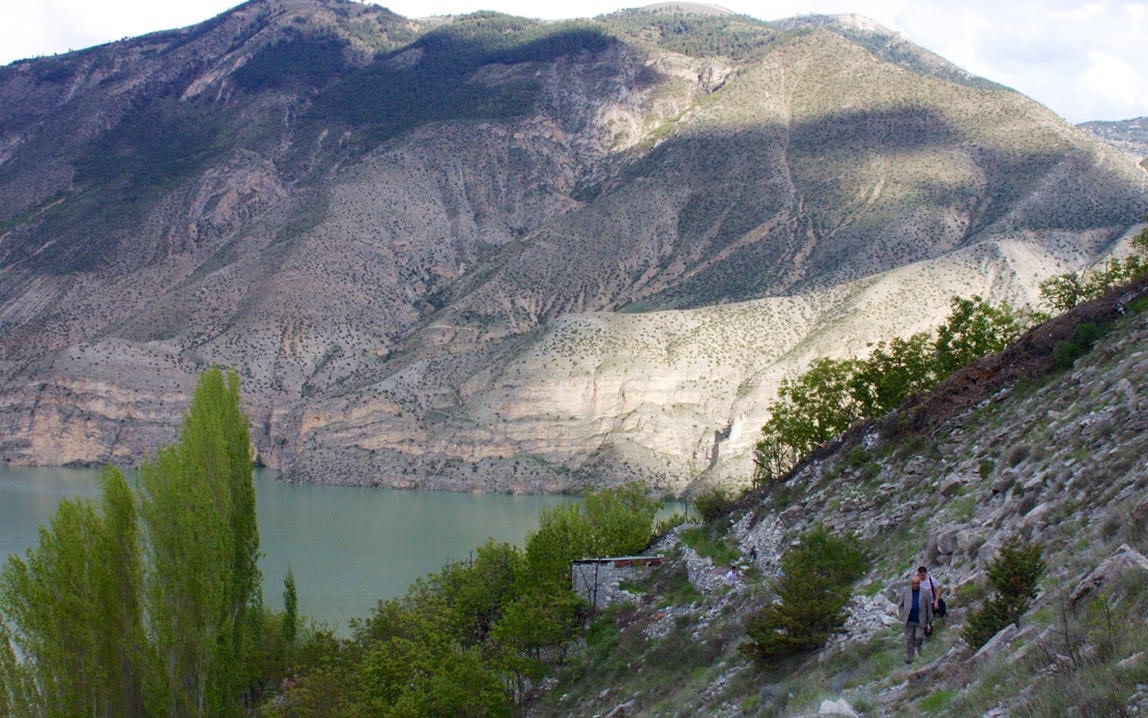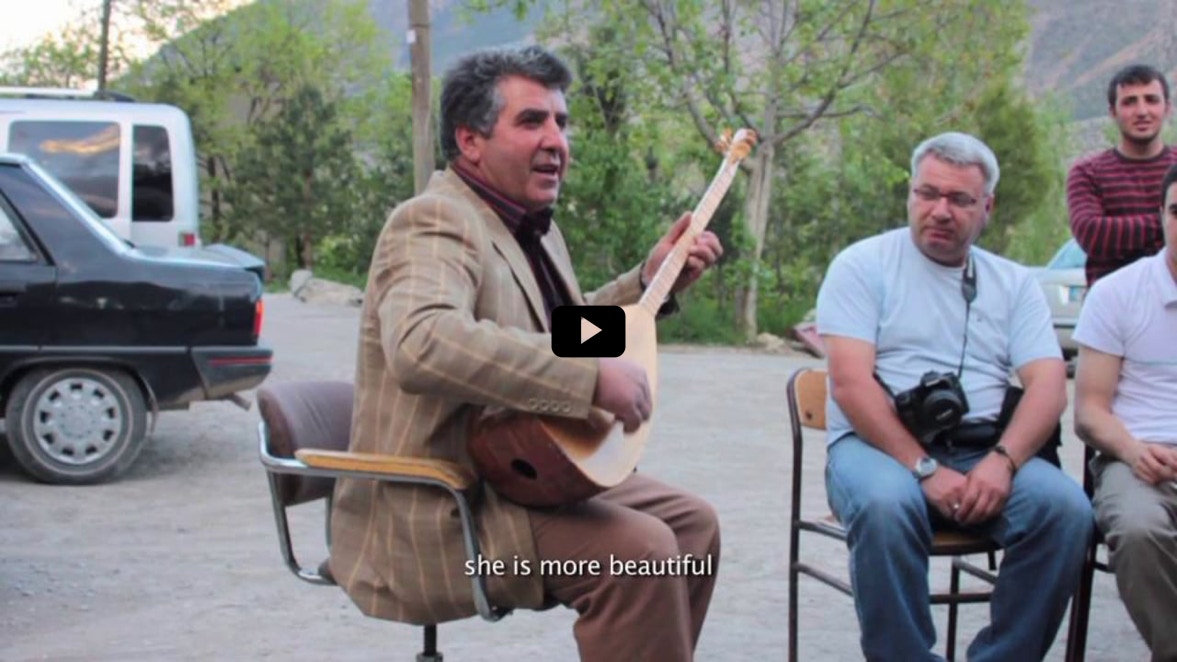08/05/2010
I was picked up at 8.30 as planned. Apprehension about who will be driving and what vehicle was satisfied. It was a young man Musa. I climbed aboard to join Erol, Hasan and Okan. We headed for the mountains. We left the city, the kind of landscape I had seen from the air began to drift into sight. Flat marshland was replaced first by green hills, graduating to brown, snow-capped mountains. We turned off the main road and drove along a reasonable road in parallel to a small river that was leaving the village. To the left a steep hillside, the right, flat open meadow with trees watched over by the steep sides of a mountain. We turned left and truck upon a deserted smallholding.
Erol went to look for the head of the village while Musa spotted and beckoned two workers in the distance. I shook their work-hardened hands, confident and firm grips both. They came over, merhabar, hand shakes and Musa tried to explain why we were there. Erol returned and joined the conversation, lale, lale, I heard. Lots of pointing to the mountains. He will show us where the tulips are.
Adem squashed in the back with the rest of us. Up the hill a while, I was looking into the distance in a world of my own when we pulled over. Adem pointed to the hillside and there, dotted between the gorse and other greenery were the beautiful vibrant red spots I had come all this way to see. I ran up the hill like a child to inspect the little plants, they were beautiful. In my excitement, I forgot my expectant team. I looked back to see a mixture of disbelief and interest as my passion and excitement became visible by my actions. Adem was fantastic, incredibly patient and helpful.
I was told later that he is part of a small scale farming avant-grade. He is brave enough to try new ways of working - the others will follow. This is a difficult area and poor. The people are desperate to find new ways of making a living but also cautious of change.
We dropped Adem and drove on to Uzundere. Erol talked about his vision for the future of how tourism can make great change to this area, a lot of effort and money is going in to promote this area and open it up to foreign money. I think about how difficult this must be, to try and persuade big business to put the logistics in place to make this progress possible. We talked about the dangers of implementing this change, how as soon as you open up this area to the outside, the very idyl that you are aiming to sell will gradually change in nature. This is a difficult problem. I remember having the same feeling about Budapest in the early nineties. We pull over to an idyllic spot, the rush of a river fills my ears, a small oasis with small wooden open air huts filled with Turkish cushions. They looked inviting. To just sit and think and dream here would be wonderful.
Under a tree on a bed, complete with pink bedspread lies Ali, the proprietor of a bed and breakfast trying to make a go of it in a seemingly impossible to find location. He is an ex-champion wrestler who who had a terrible car accident 28 years ago. He talked about love and is paralysed from the waist down. A warm and friendly man with smiling eyes and a gentle manner. He gestures to his trout pools and offered us lunch, unfortunately Erol has other plans. I told Ali that this might be a small thing for him but our meeting has made me very happy. We exchange farewells and I agree to send him a copy of the picture I took of him in the sunshine under that beautiful tree.
On the road again, I am taken to the tourist office in Uzundere. I am offered as many postcards and leaflets about the area as I can carry. The idea is that I will take these home with me to spread the word about the area and its many attractions. I agree to help if I can.
Next to lunch, beautiful spread in a wonderful setting. Riza and Nezihe are also showcasing their new bed and breakfast venture. Soup, stuffed vine leaves, salads and sweetmeats are followed by a guided tour of the newly completed guest rooms upstairs. I asked Riza how long he has been running the business - he said two years. 'Is it going well?'. A pause. Riza glanced over to Erol for support, Erol explained that things could be a lot better for them and that they are very brave to try this new idea. we discuss the various marketing possibilities, lonely planet, web traffic etc. They are lovely people and i admire their spirit and tenacity but i can't help thinking that they will fond it very difficult to make a success of it. The infrastructure is just not in place. to get here will involve changing planes at Ankara or istanbul and then a long drive. It would take the adventurous types and I am sure they would have a wonderful time but still, such a difficult undertaking. I take their picture and we leave continuing up the Tortum valley.
